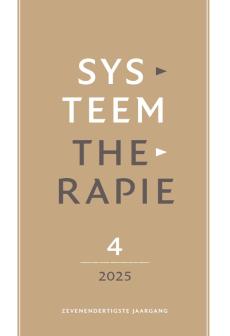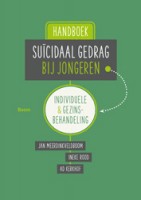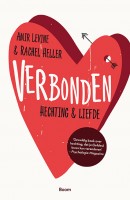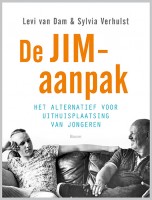Rizomatisch denken in de systeemtherapie
Samenvatting
Samenvatting In het systeemtherapeutische werkveld wordt de laatste jaren veel gesproken over het narratieve ‘zelf’ of het ‘zelf-als-verhaal’. Hiermee wordt verwezen naar het idee dat het zelf narratief geconstrueerd wordt in en door verhalen die een persoon over zichzelf vertelt. Het verhaal wordt hierbij niet enkel beschouwd als een metafoor voor het zelf: het zelf wordt niet vergeleken met een verhaal, het is een verhaal. Maar over welk soort verhaal wordt hier gesproken?
Als het zelf een verhaal is, hoe ziet dat verhaal er dan uit? Het is deze vraag die in dit artikel geëxploreerd wordt. Vertrekkende vanuit de mogelijkheden en beperkingen van de traditionele en postmoderne visies op het ‘zelf-als-verhaal’, wordt een alternatieve visie uiteen gezet. Door het ‘zelf’ op te vatten als een rizomatisch verhaal, creëren wij een bruikbare kijk voor therapeuten op de wijze waarop zelfverhalen binnen een therapiecontext vorm krijgen en stimuleren wij hen om samen met hun cliënten een patchwork of lapjeswerk van zelfverhalen te construeren. Aan de hand van verhaalfragmenten uit eigen praktijk illustreren wij het rizomatisch denken en de mogelijkheden ervan op therapeutisch vlak.
Literatuur
- Anderson, H. (2012). Collaborative relationships and dialogic conversations – Ideas for a relationally responsive practice. Family Process, 51(1), 8-24.
- Bruner, J. (1986). Actual minds, possible worlds. Cambridge: Harvard University Press.
- Bruner, J. (2002). Making stories – Law, literature, life. Cambridge: Harvard University Press.
- Currie, M. (1998). Postmodern narrative theory. New York: Macmillan.
- Davies, B., & Harré, R. (1990). Positioning – The discursive production of selves. Journal for the Theory of Social Behaviour, 20(1), 43-63.
- Deleuze, G., & Guattari, F. ( 1976). Rhizôme – Introduction. Parijs: Editions de Minuit . (Vertaald als: Rizoom – Een inleiding, 1998, Utrecht: Uitgeverij Rizoom.)
- Deleuze, G., & Guattari, F. (1980). Mille plateaux – Capitalisme et schizophrénie. Parijs: Editions de Minuit. (Vertaald als: A thousand plateaus – Capitalism and schizofrenia, 2004, London & New York: Continuum.)
- Gergen, K. J. (1989). Warranting voice and the elaboration of the self. In J. Shotter & K. J. Gergen (eds.), Texts of identity. London: Sage.
- Gergen, K. J. (1991). The saturated self – Dilemmas of identity in contemporary life. New York: Basic Books.
- Gibson, A. (2004). Towards a postmodern theory of narrative. Edinburgh: Edinburgh University Press.
- Gubrium, J.F., & Holstein, J.A. (1994). Grounding the postmodern self. The Sociological Quarterly, 35(4), 685-703.
- Gubrium, J.F., & Holstein, J.A. (1995). Biographical Work and ethnography. In R. Josselson & A. Lieblich (eds.), Interpreting experience – The narrative study of lives. Vol 3. London: Sage Publications.
- Herman, L., & Vervaeck, B. (2005). Vertelduivels – Handboek verhaalanalyse. Brussel: UBPress.
- Ricoeur, P. (1983). Temps et récit 1 – L’intrigue et le récit historique. Paris: Seuil.
- Ricoeur, P. (1985). Temps et récit 3 – Le temps raconté. Paris: Seuil.
- Ricoeur, P. (1992). Oneself as another. Chicago/London: University of Chicago Press. (Oorspronkelijke uitgave: Soi-même comme un autre, 1990, Paris: Seuil)
- Sermijn, J. (2008). Ik in veelvoud – Een zoektocht naar de relatie tussen mens en psychiatrische diagnose. Leuven: Acco.
- Sermijn, J. (2009). De plaats van psychiatrische diagnoses binnen psychotherapie – Een rizomatisch perspectief. Systeemtheoretisch Bulletin, 27(1), 27-43.
- Sermijn, J., Devlieger, P., & Loots, G. (2008). The narrative construction of the self – Selfhood as a rhizomatic story. Qualitative Inquiry, 14(8), 632-651.
- Sermijn, J., Loots, G., & Devlieger, P. (2005). In dialoog rond het zelf – Van een modern Cartesiaans zelf naar alternatieve opvattingen rond Zelfheid. Tijdschrift voor Familietherapie, 11(2), 117-153.
- Sermijn, J., Loots, G., & Devlieger, P. (2007). Who are we? From a modern Cartesian self to alternative views on selfhood. Qualitative Research Journal, 7(2), 36-51.
- White, M., & Epston, D. (1990). Narrative means to therapeutic ends. New York: Norton.
 © 2009-2026 Uitgeverij Boom Amsterdam
© 2009-2026 Uitgeverij Boom Amsterdam
ISSN 0924-3631
De artikelen uit de (online)tijdschriften van Uitgeverij Boom zijn auteursrechtelijk beschermd. U kunt er natuurlijk uit citeren (voorzien van een bronvermelding) maar voor reproductie in welke vorm dan ook moet toestemming aan de uitgever worden gevraagd:
Behoudens de in of krachtens de Auteurswet van 1912 gestelde uitzonderingen mag niets uit deze uitgave worden verveelvoudigd, opgeslagen in een geautomatiseerd gegevensbestand, of openbaar gemaakt, in enige vorm of op enige wijze, hetzij elektronisch, mechanisch door fotokopieën, opnamen of enig andere manier, zonder voorafgaande schriftelijke toestemming van de uitgever.
Voor zover het maken van kopieën uit deze uitgave is toegestaan op grond van artikelen 16h t/m 16m Auteurswet 1912 jo. Besluit van 27 november 2002, Stb 575, dient men de daarvoor wettelijk verschuldigde vergoeding te voldoen aan de Stichting Reprorecht te Hoofddorp (postbus 3060, 2130 KB, www.reprorecht.nl) of contact op te nemen met de uitgever voor het treffen van een rechtstreekse regeling in de zin van art. 16l, vijfde lid, Auteurswet 1912.
Voor het overnemen van gedeelte(n) uit deze uitgave in bloemlezingen, readers en andere compilatiewerken (artikel 16, Auteurswet 1912) kan men zich wenden tot de Stichting PRO (Stichting Publicatie- en Reproductierechten, postbus 3060, 2130 KB Hoofddorp, www.cedar.nl/pro).
No part of this book may be reproduced in any way whatsoever without the written permission of the publisher.
Nieuwsbrief Boom Psychologie
Meld u nu aan en ontvang maandelijks de Boom Psychologie nieuwsbrief met aantrekkelijke aanbiedingen en de nieuwe uitgaven.
Aanmelden



